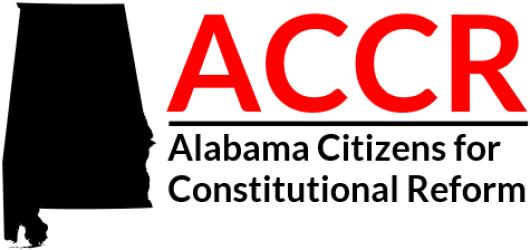Previously, ACCR announced a joint effort with the Public Affairs Council of Alabama (PARCA) to create a series of reports on how Alabama’s Constitution impacts the lives of its citizens. We are excited to announce the publication of the first of these reports, How Alabama Democracy Compares. This report can be found at How Alabama Democracy Compares – Public Affairs Research Council of Alabama (parcalabama.org)
News organizations have taken note of the report and have written articles about it. Here are two of them:
From AL.com: Where Alabama rates when it comes to ‘democracy,’ according to a new report – al.com
From Alabama Political Reporter: https://www.alreporter.com/2024/06/11/parca-alabamas-democracy-progresses-but-challenges-remain/
Here is a summary of this report:
Introduction The report examines the development of democratic practices in Alabama and compares them with other states. It highlights areas for potential reform to enhance voter participation and competitiveness in elections.
Historical Context
- Alabama’s 1819 Constitution initially embraced democratic participation by granting voting rights to white males without property or religious requirements.
- The 1901 Constitution aimed to disfranchise Black people and poor White people, centralizing power in the legislature.
Current State of Democracy in Alabama
- Alabama ranks low in voter participation, with only 37% turnout in the 2022 general elections.
- Public opinion indicates a lack of trust in government responsiveness, with over 50% of respondents feeling their voices are not heard in Montgomery.
High Cost of Voting
- Alabama imposes high costs on voting compared to other states, ranking 46th in ease of voting.
- Barriers include no early in-person voting, restrictive absentee voting requirements, and a lack of automatic voter registration.
Voter Registration
- Alabama’s voter registration rate is below the national average.
- The state has improved registration accessibility but does not offer automatic registration like 25 other states.
Making Voting Easier
- Alabama does not allow early in-person voting, unlike 46 other states.
- It also has restrictive absentee voting rules, requiring specific excuses and witness signatures.
Competitive Elections
- Alabama’s electoral competitiveness is low due to gerrymandering and straight-ticket voting.
- The dominance of one party and racial polarization contribute to low voter turnout in general elections.
Encouraging Participation
- Other states have adopted measures like independent redistricting commissions, top-two primaries, and ranked-choice voting to enhance competitiveness and participation.
- Alabama lacks direct democracy mechanisms like initiatives and referendums, limiting citizen involvement in legislative changes.
Conclusion
- Alabama’s new constitution removed discriminatory provisions but still describes voting as a “privilege” rather than a right.
- For a more vibrant democracy, Alabama could adopt practices from other states to ease voting, increase competitiveness, and allow for greater citizen participation in government reforms.
